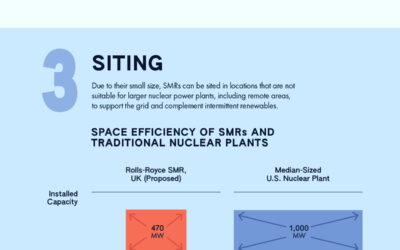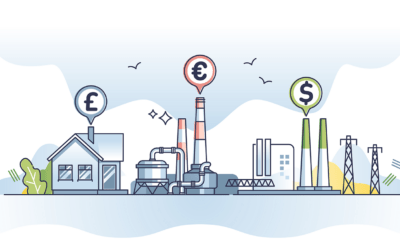Mental health has been a buzzword for years now with focus on its relationship to one’s working life. Mental health is defined by the World Health Organization as “a state of mental and psychological wellbeing in which every individual realizes his or her own potential, and can cope with the normal stresses of life, can work productively and fruitfully, and is able to make a contribution to his or her community.”
Those who have positive mental wellbeing are generally self-confident, feel and express a range of emotions, can build and maintain healthy relationships, can cope with day to day life stressors, and can adapt in times of change or uncertainty.
Work related stress occurs when individuals are faced with workplace pressures that do not match their abilities, creating an inability to cope, especially when these individuals feel a lack of support from supervisors and little control over their work environment. Work related stress, and general negative mental health, can present through the individual such issues as presenteeism, showing up to work while feeling unwell, resulting in poorer than usual performance. Other resulting factors are excess absence from work, and employee turnover.
I’m sure everyone can sit back and think of at least one point in time in their working life where you were at your breaking point: you were overwhelmed, had too much on your plate, were unsure of what was coming down the pipeline next, struggling to meet this work deadline while also trying to maintain family and friend connections, sleeping and eating poorly, lacking motivation, feeling like the world is against you, you can’t do anything right, pulling your hair out… we’ve all been there, whether it was just a few fleeting moments until you pulled yourself out of it, or you despaired for days, weeks, or more.
To make it more complicated, these feelings may be harboring more under the surface, and may not be solely based on the situation unfolding in front of you. It’s not always as easy as “muscling through” to meet that deadline; oftentimes, there is much more to the story.
When it comes to being consultants, we have unique work burdens that impact our mental wellbeing. A 1982 article by A. Turner in Harvard Business Review describes an eight layer “hierarchy of consulting purposes,” starting from basic to complex:
1. Providing information to a client.
2. Solving a client’s problems.
3. Making a diagnosis, which may necessitate redefinition of the problem.
4. Making recommendations based on the diagnosis.
5. Assisting with implementation of recommended solutions.
6. Building a consensus and commitment around corrective action.
7. Facilitating client learning—that is, teaching clients how to resolve similar problems in the future.
8. Permanently improving organizational effectiveness.
We at Motive Power strive to do all of the above at some level in every contract we are a part of, with the underlying goal of “bringing value” in every way to our clients. Being a consultant allows us as a whole, and individually, to build vast networks of contacts, across many industries; we typically work with like-minded, Motive-ated people, which inherently leads to cohesive teamwork; there are countless opportunities to learn, grow, and progress as no two contracts are the same, and there is always something new on the horizon; there is always a new challenge no matter what level you are in terms of experience, and there is always someone willing to help guide you on whatever path you choose.
While all these good things are a part of being a consultant, they must be foiled with some not-so-good things. Consulting can inherently be stressful, oftentimes with more than the typical 40-hour work week, which can be hard for those trying to strike a balance between work and home life. Others may feel it is hard to “stand out” and work their way up, leading to feeling unrecognized and underappreciated. Consulting can come with a lot more uncertainty compared to your “typical” 9-to-5 job. At many consulting firms, there is a lack of trust between employees, leading to back-stabbing and poor work relationships. Heavy travel can also quickly lead to burn out. There are statistics that show many consultants don’t last in their role past three years.
With all that being said, Motive Power has done a great job in creating a flat work environment with open doors, camaraderie, and encouragement to maintain a healthy work-life balance as much as possible. Employees are expected to work on internal projects to create that sense of ownership in what the company does. Everyone is genuine and willing to help others. Going with the flow and learning (quickly) as you go is the mantra each employee learns to embrace.
Even with the positive environment Motive Power has established, mental health is still a consideration, as individuals are dealing with more than the workplace pressures, especially as the COVID-19 pandemic continues. In the article “Prioritizing Your Mental Health at Work”, Kenya McCullum paints a broad picture of the “mental health landscape” with these statistics:
More than 300 million people around the world suffer from depression; this is the leading reason why workers go on disability!
83% or men, and 72% of women, report workplace stress affects their personal lives
Existing mental health problems attribute to workplace stress, according to 28% of Americans
Some work environment factors that exacerbate mental health issues include:
-
- Inflexible work schedules
- Lack of support and poor communication from management
- Lack of clarity about work roles/tasks/expectations
- Unsafe work environments
There is a huge stigma around mental health with 3/10 people admitting they are embarrassed to talk to others about their anxiety, depression, or workplace stress, with 60% of people fearing being laughed at, being thought poorly of, not being promoted because of weak perceptions, or being seen as unwilling to work
What can an individual do to help manage their workplace stress, and overall mental health? First, know the signs of the problem, for yourself and others. Maybe you’re struggling to complete normal, routine tasks. You are wanting to call in sick more often, or otherwise avoiding work. You may push yourself to work harder but it will just aggravate the issue.
Making to-do lists with broken down tasks, taking frequent breaks, remembering to drink water and fuel up on healthier foods are all basic self-care actions that can easily fall by the wayside. Avoiding workplace gossip, saying “no” when you have too much on your plate/asking for help when you need it, setting manageable goals, and adding a personal touch to your workspace can all help make the day to day grind easier.
Identifying your triggers is an under-utilized exercise that can help so much in minimizing any negative impact to your mental health. You may be stressing over that workplace presentation – was it because you were given harsh or negative feedback in high school in your debate class? Are you nervous about sending out that blunt-but-tactful email about the project progress because you don’t do well with conflict or you struggle with not feeling “good enough”? I know my perfectionists are out there! If you can identify the root issues with these triggering feelings, you can begin to develop healthy ways to respond to these triggers, whether it be finding a coworker you trust to practice that presentation with, or going over that email with a mentor to make sure the tone is right, while also going over what is also going right about that project.
Twenty percent of individuals report struggling with a mental health disorder; you are not alone. There is nothing to be ashamed of; wouldn’t you seek help for a broken bone, or an infection, or a nasty flu? Why is seeking help for mental health any different?
In this pandemic, many are worrying about their job stability, child or elder care, exposure risk dependent on work location (i.e. on site or at home) and maintaining that work-life balance while working from home. To help engage with employees, companies are encouraged to host virtual meet-ups within teams, or company-wide, with manager and leader check ins, and encouragement to take time for self-care. Encouraging open communication, offering support, and allowing (reasonable) flexible work schedules and locations are also helpful in combating the stressors of our current world situation.
Many companies offer wellness programs to support mental health, and many others offer perks such as nap rooms, game rooms, or outdoor areas (think GOOGLE) to encourage people to get away from their desks. The idea is to keep workers healthy, to keep them focused on the job, resulting in lower company cost. Companies must strike a balance between giving these offerings in the intent of helping employees, versus the them appearing as bribes to make up for over-the-top workplace expectations.
One study with feedback from over 30,000 employees at a US based company “reported no significant differences in absenteeism, healthcare spending, or job performance than those who were not.” Another study finds these wellness programs tend to do well with those who are already healthy, and further isolates those who may not be. Even though many companies now offer Employee Assistance Programs with therapy benefits, trends indicate less than 7% of people actually use them. There is no one-size-fits-all solution, but these are elements companies should consider when it comes to their employees’ mental health.
At the end of the day, we all need to be compassionate, for one another, for yourself, for our clients. Our clients are struggling with the same pressures and demands we are, and since we are (currently) not face-to-face with them, it may not be as obvious. When someone is acting out of the norm, underperforming, missing work, isolating – reach out. Let them know you see them, as a person; they don’t need to tell you what’s going on, but sometimes just knowing someone notices something isn’t right can make a difference. Be willing to lend an ear, to offer help. Don’t be afraid to speak up about yourself! Taking care of yourself is not selfish; like they say before take-off, “put your mask on before helping others” – you can’t take care of others if you don’t take care of yourself.
Citations:
McCullum, Kenya. “Mental Health in the Workplace: Coping with Depression and Anxiety.” LearnHowToBecome.org, LearnHowToBecome.org, 24 Sept. 2020, www.learnhowtobecome.org/career-resource-center/mental-health-at-work/.
Author: Heather Paris



